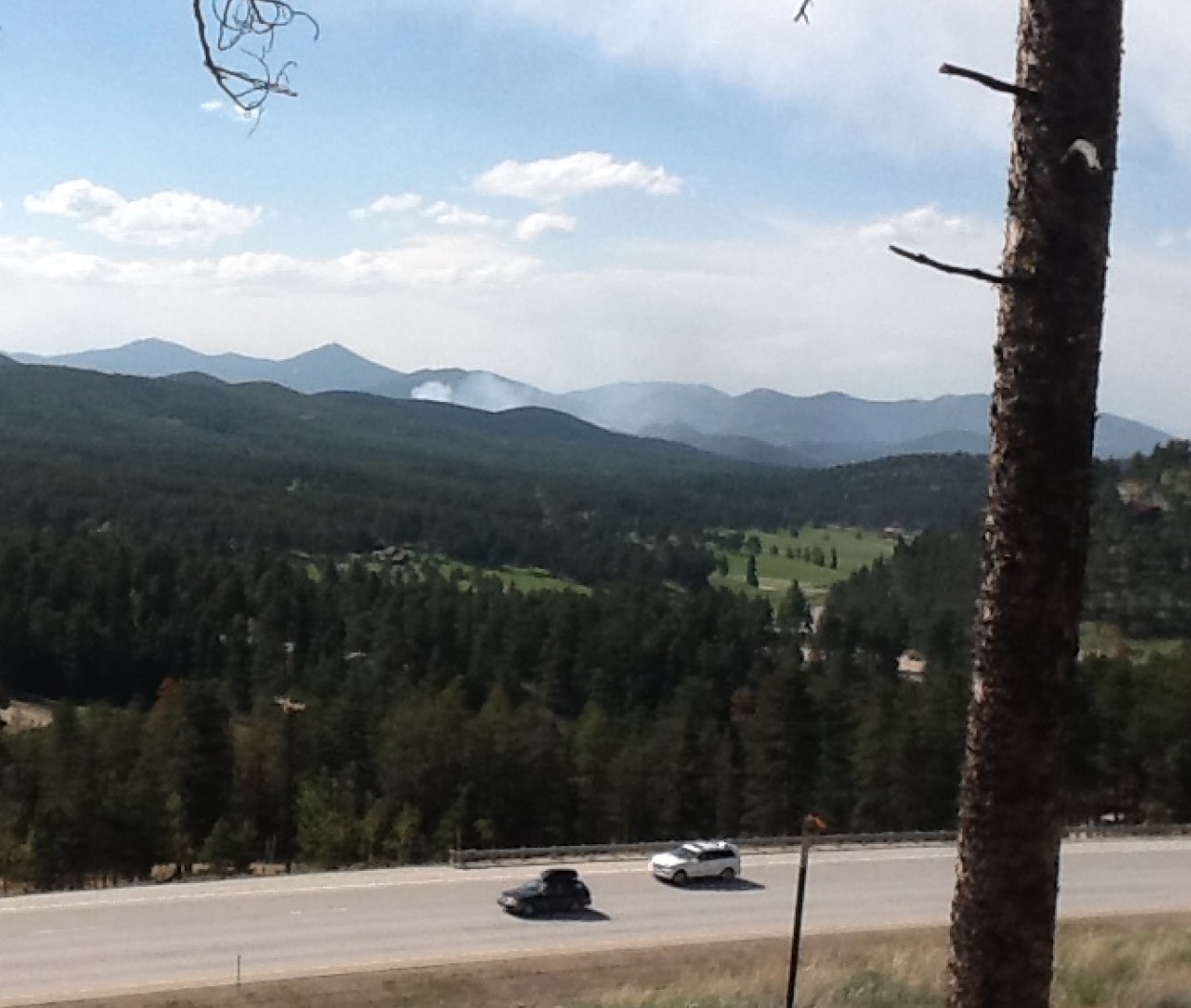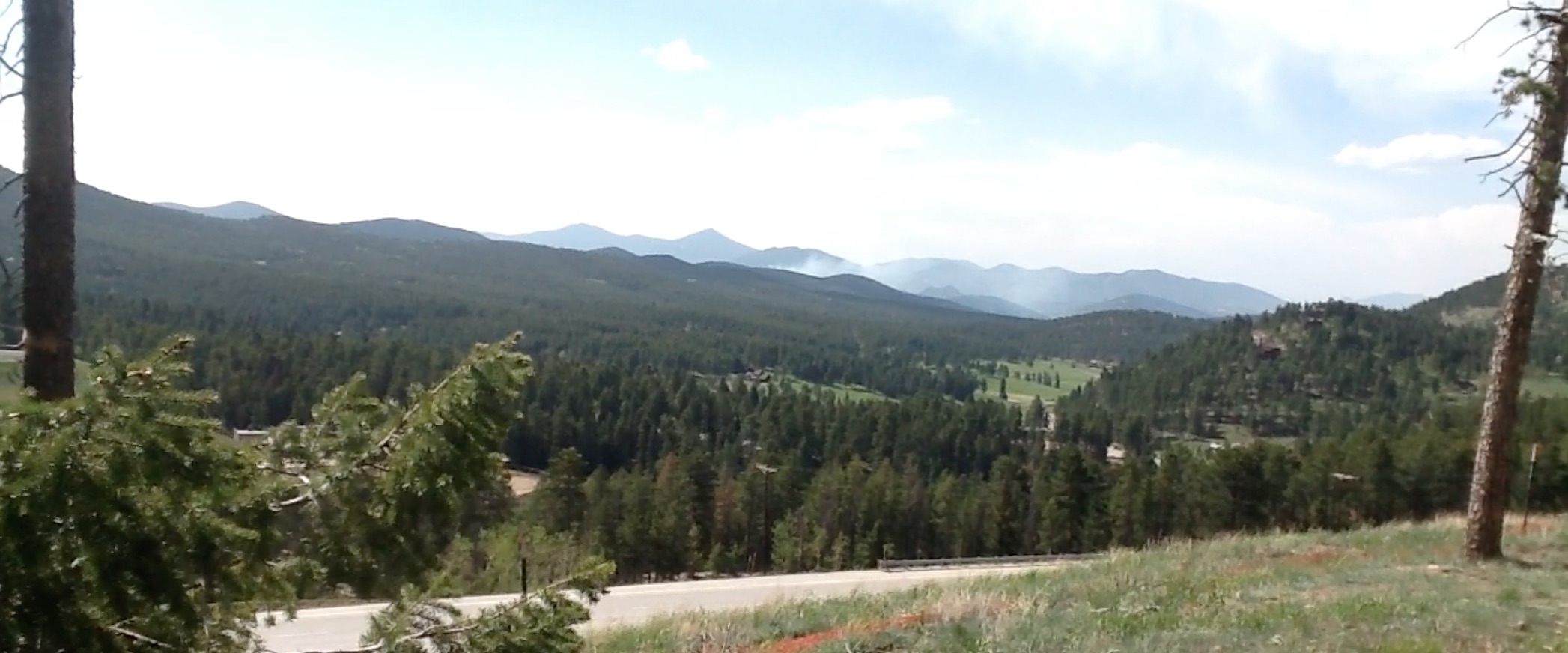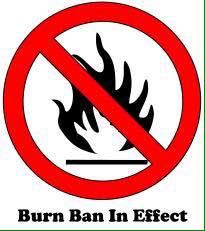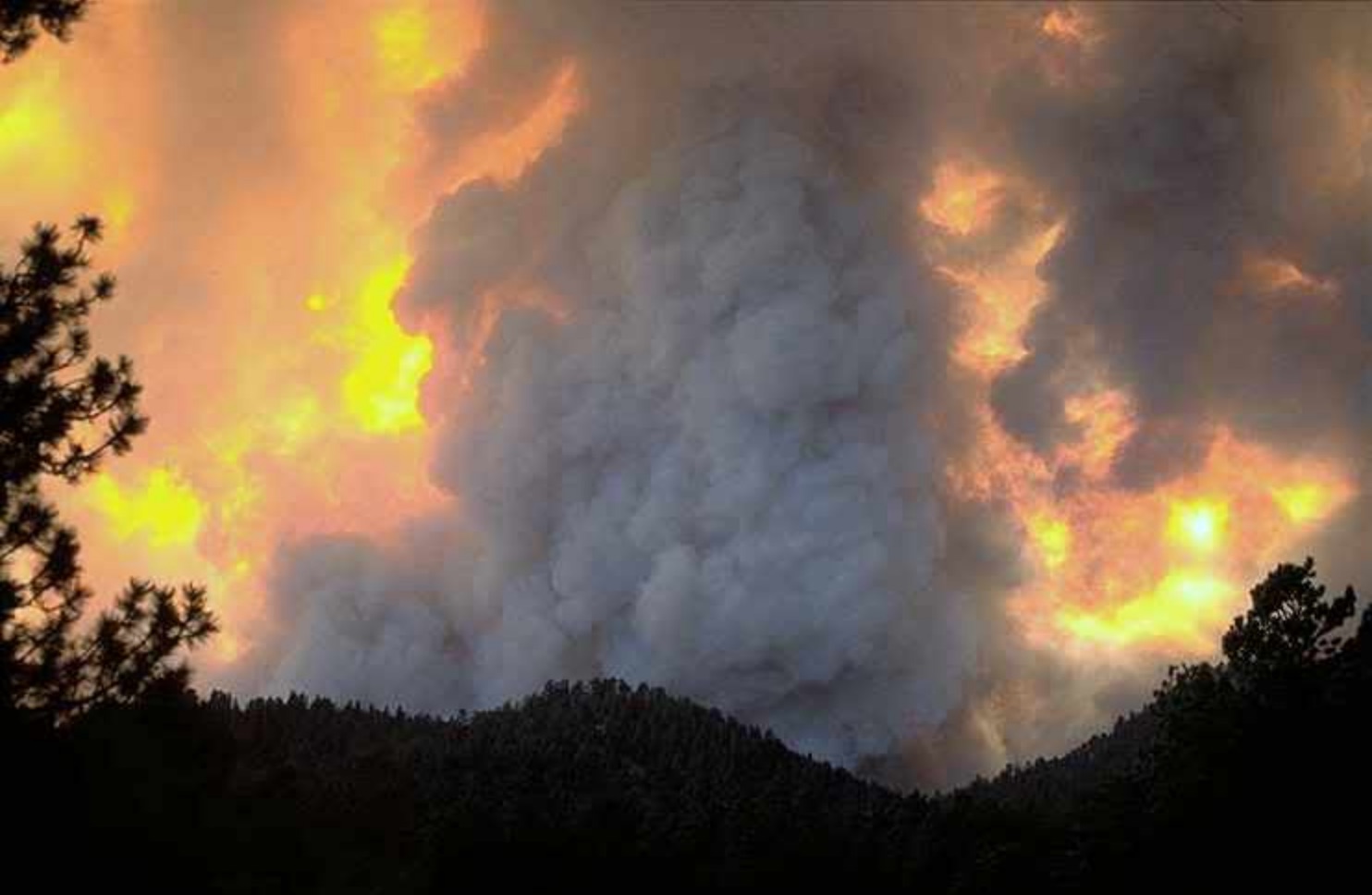Sharon Montgomery
A Real-World look at Fire Mitigation and the effects on all of us
"What's the difference between reading a resource document and finding a reason for getting involved?" I asked Heather Galaska when we spoke of Fire Mitigation in her childhood home of Evergreen, Colorado. Here's how my time with her went.
H- Well, it's the difference between simply reading about somebody that something bad has happened to, and caring and loving on people who you don't know at all. It's figuring out that you care ENOUGH. Because when that happens, it's about becoming part of that community, no matter how far away you live. The second you care, the second you go, 'What can I do to help?' You're in it. You're a fan club from afar, but then you also belong in the community. And for somebody in your community to feel terrified all of a sudden, well, that matters.
S- I appreciate you being open to me about such a vulnerable and horrifying moment. I know you were in your Evergreen home when the reverse 911 call came, and you had 10 minutes to evacuate. What happened? I mean, will you let me in on what the circumstances were, and how you got through it?
H- Well, yeah, but growing up, my parents would take all the artwork off the walls of our home in late spring. They would pack up all the photos and all of the important documents. They would rent a storage unit in Denver, and that's where all those things lived during fire season. My parent's walls were bare, but they were things, family heirlooms, that my mother couldn't let go of and would be devastated if something happened to them.
There would be an entire weekend where my sister, my brother and I would help my parents clear out the house, and then they had emergency bags by the front door. So that when you get that 10-minute phone call, all they had to do was grab a bag and the cats.
S- And then you really did get a phone call. What year was that?Photo by My Mountain Town of the Bluebell Fire in Evergreen as seen from Conifer
H- That was in 2013, the Bluebell Fire and I was living in Upper Bear Creek, and it was on the hillside just over the mountain on the other side. I was at work and got the reverse 911 call, and I was 15 minutes from my house. I had to go through a police barricade to get there. I had to find something to prove that I lived there, which I didn't have because I was renting a room from a girlfriend at the time. There was no formal lease. I was FREAKING OUT, saying 'You gotta let me up there! You can follow me up there, I don't care, but you gotta let me get up there!' and an officer took pity on me and let me go. They were doing patrols, and you had 10 minutes. You had 10 minutes to grab everything you could grab, and that was it. And you were out.
And then it was surreal driving back from it because I went, 'Well now where do I go?' I hadn't even thought about that. It was 'Okay, what documents do I need, and what was the most important thing, which I absolutely have to have?' I need my passport. I need my Social Security Card. You know, those sort of things.
But then when you've been evacuated from your home, where the hell do you go?
S- Where did you go?H- I went back to work, actually because I was close enough that I could see what was going on. I could smell the fire from there, and I felt safer there than anywhere else because at least I knew what was going on. I was far enough away that I wasn't in danger, but I was close enough to know what was going on. I downloaded a police scanner app on my phone, and I sat at my desk. And then thankfully, the fire wasn't a massive one, and they were able to get it under control quickly, but the danger was that it was a windy day, and they had no idea what would happen. They had no idea if it was going to reach over the crest, they just didn't know.
So they evacuated everybody in a 5-mile or so radius. So I was able to go home in the late hours, but that was still terrifying. When I could still look and see the glow, it was eery. I couldn't see the land, but I could see the glow off the mountain just on the other side. I just about had a panic attack looking out my back deck, watching it happen. Going, 'I still don't feel safe. I mean, yeah, they let me come home, but there's still orange. I could see it in the air. I didn't sleep that night. I didn't unpack my car for days. The fire was out. The danger was mostly done, but nuh uh. I'm not unpacking my car.'
S- So then what changed for you after you unpacked? Did you do anything different to prepare, ya know, as far as your land and your stewardship, or was it something that was like, "Thank God I got through it, and then back to life, back to reality, and I hope it doesn't happen again?"
H- There was a little bit of that, yes. I always thought my parents were a little ridiculous with their preparation. But then at that point, I got a fire safe box that had all my important documents. Because when you have 10 minutes and all your documents are in a big metal, five-drawer file cabinets that everything gets shoved into over the years - good luck finding what you need to find. So that changed for me. Everything that was truly important to me was in a fire safe box that I could just grab and go.
Um, that's the one thing. And I took my parent's a little more seriously at that point, and understood where they were coming from, and didn't tease my mom nearly as much.
S- I would hope not! Haha.
H- I would. I would tease my mom, 'Ooohhh, we're moving to the storage unit just in case it happens!' Well, it did. It did.
S- Was your mom the only one around the neighborhood, the area that took those precautions, or was it a way of life there? Did you know other people that maybe it was weird, but they did it too?
H- There were other people. At the time, my mom was working at the pharmacy at Safeway, and everyone knew what everyone else's back up plan was. It was something that they all discussed. They all lived in different pockets of the neighborhood and areas of the community. If something were to go wrong, you knew where that person would go and what their plan was, and where their family was. It would be easy to follow up and see that they were safe. They all did that for each other.
S- Right. And you hit the nail on the head. They all do that for each other. It is for themselves, too, but if you are making those connections, you are doing it for other people as well.
H- Absolutely. It's a community thing at that point. And I know that they open up the high schools, depending on where the fire is, and there are shelters you can go. Being on the board for the local Salvation Army extension unit, I know the safety procedures there. I know how the food trucks get called out to help feed people. So I know there's support that 's set up in the communities, but it comes down to the 78-year-old woman .. who in your neighborhood needs help? When the crap hits the fan, who needs help?
Horses. Thank God for Jeffco HEAT, the organization that coordinates animal evacuations. It was a huge deal in the Bluebell Fire. It's all horse property back there. Because otherwise, where do you evacuate horses on short notice? The fire department had called for people to bring trucks and trailers. Some people were not home, and there were people stuffing horses in trucks and trailers just to get them out. So who do you help? Who do you know that would need assistance, and do you have your ducks in a row enough that when the 10-minute call hits, you've got 5 minutes for yourself and 5 minutes for your neighbor?
S- So then, the question is, you may live there, and you may know where do you go, and what the resources available there are, but if you are visiting there, or playing there, working there and commuting there, you have to know this stuff, too, right? And you have to give a damn enough to be part of that community, whether it's for an hour, a day, a weekend, or a lifetime, right?
H- Absolutely. Without a doubt. It's about thinking ahead. And in times of extreme fire danger, visitors can use the CODE RED app. It's an emergency alert notification system used by many counties. And anytime anyone is going away from their home, they should look up the non-emergency fire and police numbers to stay informed and get notification of emergency events in the area they are visiting or camping in. Have it programmed in their phone, because then you don't have to look it up when there is a crappy internet connection.
And you never know, right? I mean, that's the thing. You get that phone call, and you never know. The wind could have EASILY taken that fire in a different direction, and my story may have been different. But my neighborhood was so fortunate. So fortunate.
S- Did you hear about other neighborhoods, other people?
H- Our (Evergreen) Fire and Rescue Department is amazing. Dear God, they are amazing. I don't believe that they lost any structures in that particular fire, and they had it out very fast, compared to other fires they've had up there. And most of the firefighters are volunteers.
S- That's incredible.
H- Yeah. Some positions are paid, but the bulk of them are community members. I think that they are the ones who love what they do and love their neighbor and that's why they do it.
S- Well, and the Fire Safety Council, same thing.
H- It truly is the community. In my opinion, we all have our roles in a community. In any community. And at any given point and time, one role may be more important or crucial than another. One role may sit quietly while life goes by, but then when needed, that role becomes crucial. During a fire, it's the role of the firemen and women. The first responders. They are the ones who need the help and support, and they are the ones who are going to save that situation.
S- And as community members, we provide the supporting role to shore them up and make it as easy and sustainable for those firefighters to do their job, which benefits us anyway.
H- Yep. But other situations happen all the time where other people and their gifts are needed, those are the ones that are in demand at that time.
S- And they all step up in their lanes at their time, and that's how we cover our butts.
H- It is. That's what community means.CYA (Cover Your Ass), and overlapping leadership. And just know that we've got each other's back. Because in this situation, if you can't trust your neighbor, who can you trust? I mean, really? In a moment where your life's in danger, your neighbor is the closest one to you. They are your lifeline.
S- As a resident there, what do you wish visitors knew, or what do you wish they would do differently, to be part of the solution? What could they do, how can they help your community so you can help them when they are there if there was a fire or emergency like this? Because it would be a back and forth need.H- It would be, yep. My first gut instinct would be to say:
- When the signs say "No Campfires," then NO CAMPFIRES. Period!
- Keep your cigarette butts in your car. And fireworks, too. Because nine times out of 10, that's what happens to cause it. If you are going to play up here, all we ask is that you be responsible, and think of our neighborhoods as your neighborhoods. You have no idea about how far the consequences can reach.
- When the fire bans are up, and it says extreme fire danger, don't mess with fire! Leave it. These are people's lives that you are messing with. This issue is so much bigger than someone's solution being, "Oh, I have a gallon of water. I can control it." No. No, you can't. Especially in the case where your out-of-the-way place is not mitigated. No, you can't.
S- Why can't you control it with a gallon of water?
H- Everything up here is so dry. You can't control the sparks. You can't control the wind. And it doesn't take much. Not much at all. And anyone can make a mistake! Take the Hayman fire. A park ranger lit up a love letter that her ex- had sent her, burning it, and that started the whole damn thing! (Photo by member Conservative Voice)
If you love these places and you want these mountain refuges, handle them with care and respect. Honor that when it says there is an extreme fire danger. Don't mess with it. Because you can destroy the place you enjoy escaping to, and you may not be able to escape there anymore. It won't be that serene place, and it will never be the same again. This topic is much bigger than, "Oh, I want a campfire, so I'm just going to have a campfire. Nobody will know, and it will be small."
S- From a resident point of view, what would you want a document to have covered?
H- It's just that community piece. About how everybody can come together in a neighborhood to mitigate. And then help Betty down the street because she is 89 years old and her husband is gone, and she can't use a wood chipper herself. She doesn't have the strength to lift the log and put it in there. Go help her. Take care of her. The sense of community that is for people up the street or down the mountain, or across the country.
I hope this article changes lives.
S- So I'll play Devil's Advocate for a second. This story is all nice for people who live there, but what about business owners? "I don't live there. I'm not involved in the neighborhoods. I just have a business there." It's not the same stake as residents, is it? What do you wish business owners would do differently to get involved? Maybe they just have a rock shop or gas station, or some brick and mortar establishment with 9-5 hours?
H- But that's enough of a stake because it's your livelihood. If a fire rips through Conifer, what's the plan? You don't want your livelihood to go up in flames any more than we want our homes destroyed. Be part of the mitigation process.
Above that, you need to know what the community plan is, right? Where does everyone go? Can your place of business be part of the solution? For shelter? A gathering place? There's one road in and out. What do you do? The goal is for everyone to be involved in that.
S- What can perfect strangers, people who have no desire do? Why should they care?
H- Where do you think the drinking water comes from? The mountains are the main water supply. We all know that up there, but it tends to be something to be overlooked. Water is a precious resource, and that's where it originates. When huge fires happen, silt and particles muddy the water for a long, long time.
Also, Christmas trees. Lumber. Local art. The unique history so integrated into the Colorado culture. Okay, so you may not physically buy things in the mountains, but maybe the company that you buy your lumber or furniture or food from bought those items from a company in the mountains. It all trickles down. All those actions affect everyone.
S- Okay, so now what do people do? What if people say, "Hey, I love drinking water, so what can I do to wake up and do something to help?" What do you want from them? Money? Volunteer time? What?
H- I think both of those things are important and as a member of the community, I'd almost rather see the physical help than the financial help just because it's a lot of work. It's a LOT of actual, physical work. We are trying to make a lot of land safe. We need help with that.
I grew up in an area with 2 acres and a ton of trees. It was my sisters and my job to rake the pine needles out of the yard. 2 acres to rake, because my dad was terrified of something happening. I mean, that stuff is kindling at that point. You are just fueling the fire if you don't handle it. So go help.
Many hands make light work. I know there are so many resources out there to channel the help. And if you live too far away, or are too busy, then send funds so someone else can do what you can't. It makes a difference and can save lives.
S- Thank you, Heather, for taking the time to open up about something so important.
H- You're Welcome. Glad to help.
So that's a real-life reason to do more than reading about it. Here are some resources to help you learn more, and then get involved. And let us know what you're doing to help; we'd love to hear from you!
https://www.fema.gov/wildfire-mitigation-faqs-and-resources
https://www.bouldercounty.org/disasters/wildfires/mitigation/
https://www.nwcg.gov/sites/default/files/publications/pms051.pdf
http://csfs.colostate.edu/wildfire-mitigation/
http://csfs.colostate.edu/wildfire-mitigation/protect-your-home-property-forest-from-wildfire/
https://www.bouldercounty.org/disasters/wildfires/mitigation/frequently-asked-questions/
https://www.nps.gov/olym/learn/management/upload/fire-wildfire-definitions-2.pdf
https://mymountaintown.com/forum/139-the-campfire/76941-do-you-have-a-go-bag-a-bug-out-bag






